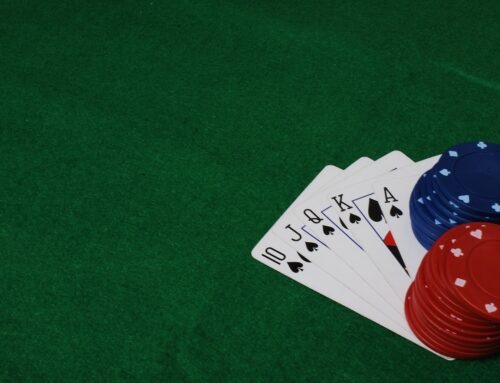Rene Descartes, the seventeenth-century French philosopher, is probably best known for defining a starting point for existence: “I think, therefore I am.” This was central to his philosophy of material dualism, in which he made the distinction between two types of substance: mental and material.
This separation of mental substance (thought) from material substance (matter, including our physical bodies) was an elegant theory but the split between mind and body has had some unfortunate consequences. We humans have become estranged from the natural world of which we are a part, and we have become estranged from our physical selves.
There are ancient parallels to this Cartesian dualism. Some religious texts, such as the biblical book of Genesis, contain an injunction for humans to have dominion over animals and matter. Through these narratives our bodies and the natural world have become something to be subjugated, like an enemy land which we are urged to conquer and control by force, whatever the consequences.
This attitude of subjugation is all too prevalent amongst professional athletes, a group of people who many consider to be the epitome of physical health. In what has come to be known as the Goldman Dilemma, a researcher asked elite athletes whether they would take performance-enhancing drugs that would guarantee them an Olympic gold medal, but which would also certainly kill them within five years. More than half the athletes said that they would take the drugs, even at that price. The survey was repeated biannually for a decade, and each time the original result was confirmed.
Professional athletes occupy one end of a spectrum, the other end of which is occupied by the couch potato, whose inactive body is often a dumpsite for toxic substances that help to maintain a state of somatic ignorance. While these may be the extreme ends of the spectrum, they point to the deeply unhealthy relationship that many of us have with our bodies, where we either punish our bodies or where we are indifferent to their needs.
One of the problems with the idea of mind having dominion over matter is that mind actually resides in matter, or arises from matter. Mind is what grey matter does. Pretty much everything you experience happens in your body: your sensing and feeling, your thinking and remembering. Your body is the source of your cherished consciousness and intellect, and the extent to which you abuse or neglect your body, you contaminate your mind.
Consider research done on the decisions of a group of judges who sat on all-day parole hearings. The researchers found that, although 35% of applications for parole were approved overall, around 65% of requests were granted after the judges had had a meal break and this proportion declined steadily to around 0% just before meal breaks. The researchers concluded that fatigue and hunger had a significant impact on the decision to grant parole. Being tired and hungry negatively affected the judges’ decision-making ability, without the judges even being aware of it. The implication of this research is clear: when you attend to your body’s needs, you improve your cognitive performance.
There is an emerging field of science, neurogastroenterology, which is devoted to understanding the relationship between the gut and the brain. The scientists in this field have found that there is a network of a hundred million neurons in the lining of your gut that is so complex that it is sometimes referred to as the second brain. The head-brain and gut-brain are connected by the vagus nerve, and 90% of the fibres in this primary visceral nerve carry information from the gut-brain to the head-brain.
This directionality is revealing: your body has something of value to say to your mind. If you allow the lines of communication between mind and body to fall into disrepair, your body will need to talk ever louder with ever-worsening symptoms. If these too are ignored the whole system that is you will begin to deteriorate and disintegrate.
When you are exposed to noise (the set of chronic disturbances and acute disruptions) over prolonged periods of time, you might begin to experience symptoms such as headaches and backache. These are the first whispers from your body that you need to do something differently. Typically, you will react with one of two strategies:
- Indifference. You might try to ignore these symptoms in the hope that they will magically go away while you keep doing the same things.
- Punishment. You might attempt to suppress the symptoms with self-destructive behaviors like substance abuse.
Your body will then need to increase the volume in the hope of getting your attention. Your emotions and behaviour will become affected, perhaps in the form of increased anxiety and disordered sleep, and your cognitive performance will deteriorate, resulting in poor decision-making. If this continues you expose yourself to the increased likelihood of exhaustion or depression, and it can trigger illnesses for which you have a genetic predisposition. All of which can result in terminal injury to your career.
The smarter approach is to listen to your body. Your physical symptoms can be a coded request sent from the somatic frontline to the executive headquarters that something requires your attention, perhaps urgently.
Your physical sensations, especially if they’re unpleasant, can be of great benefit to your cognitive performance. Ironically, the first step to better mental health is to attend to the causes of your physical ailments. That dull ache behind the eyes, if you treat it right, might be the thing that saves you from a whole lot more pain.
Reflections
- What are your chronic physical ailments?
- If these ailments had a voice, what might they be asking of you?
- What will you do about this? When?
References
- Justin Newdigate: Noise (2019)
- Shai Danziger: Extraneous Factors In Judicial Decisions (2011)
- Adam Hadhazy: Think Twice (2010)
- Jon Kabat-Zinn: Full Catastrophe Living (2009)
- Robert Goldman: Death In The Locker Room (1992)
- Bertrand Russell: History Of Western Philosophy (1946)







Leave A Comment